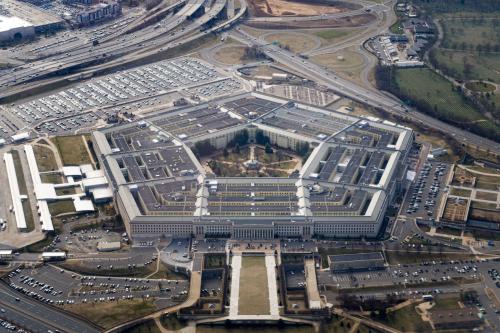President Biden’s authorization of a U.S. retaliatory strike against Iranian-backed militias in Syria raises questions about his administration’s policies toward Iraq, Syria, and the broader region. Michael O’Hanlon addresses the scale of the airstrikes, whether congressional authorization should have been sought, and how he expects the Biden administration to streamline the U.S. military presence in the Middle East.
Related material:
- Biden’s decision to strike Iran’s proxies is a good start
- How to demilitarize America’s presence in the Middle East
- What to do – and what not to do – in the Middle East
- How to Do More With Less in the Middle East
Listen to Brookings podcasts here, on Apple or on Google podcasts, send email feedback to [email protected], and follow us at @policypodcasts on Twitter.
Thanks to audio producers Gaston Reboredo and Colin Cruickshank, Chris McKenna, Fred Dews, Marie Wilken, and Camilo Ramirez for their support.



Commentary
PodcastWhat’s the significance of Biden’s first military strikes in Syria?
February 26, 2021